Africa has long been acknowledged as a continent with enormous potential for agriculture. Unfortunately, the industry has largely remained underdeveloped. However, the future of African agriculture is looking brighter than ever with the rise of cutting-edge technologies and a growing interest in sustainable practices.
Numerous new tools are revolutionizing agriculture across the continent, from precision farming to digital platforms that link smallholder farmers to markets.
In this article, we’ll look at some fascinating developments and technologies transforming African agriculture and laying the foundation for a better future.
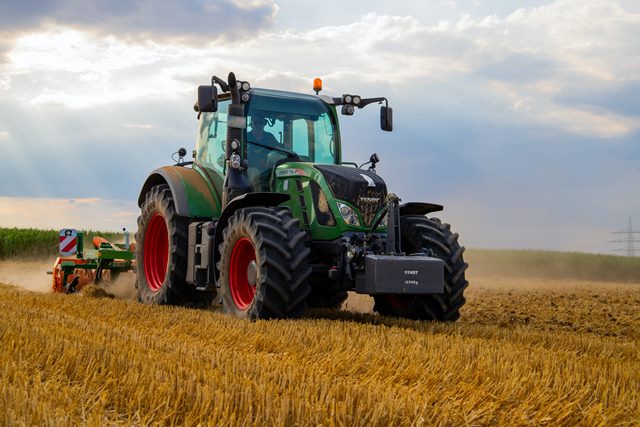
Innovations and Technologies Transforming African Agriculture
In recent years, African agriculture has adopted innovations and technologies at a significantly higher rate. With these technologies, farmers are producing food in new ways that are more productive, efficient, and sustainable.
Additionally, they are key in reducing the effects of climate change and enhancing nutrition and food security across the continent.
Digital Technologies in African Agriculture
Digital technologies are one of the significant innovations transforming African agriculture. These include mobile phones, internet access, and various software programs that farmers use to enhance their ability to make decisions and gain access to market information.
Farmers can access real-time market information, weather forecasts, and advisory services through mobile phone apps like WeFarm and Esoko.
Innovative Tech Solutions, Tailored for You
Our leading tech firm crafts custom software, web & mobile apps, designed with your unique needs in mind. Elevate your business with cutting-edge solutions no one else can offer.
Start NowAdditionally, they help farmers connect with other farmers, buyers, and sellers, which improves networking and collaboration opportunities.
Precision Agriculture and Drones for African Farmers
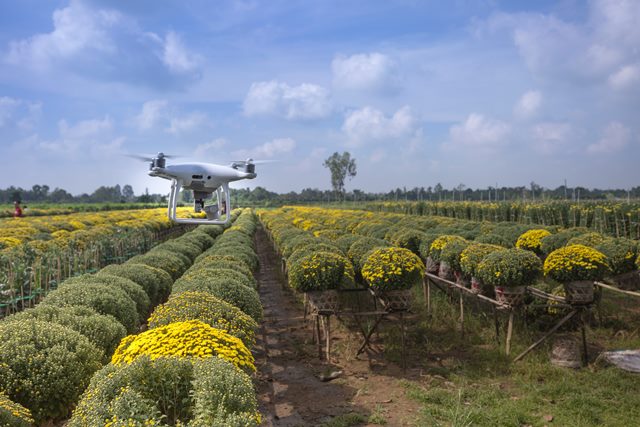
Another vital technology transforming African agriculture is precision agriculture. It allows precise monitoring and management of farm fields through data and cutting-edge technologies like Global Positioning Systems (GPS) and Geographic Information Systems (GIS).
Drones allow farmers to take high-resolution pictures of their fields, which can be used to map stressed areas and detect crop diseases and pests.
Agricultural Biotechnology
Agricultural biotechnology is another significant technology that is changing African agriculture. Scientists have created crops that are more productive, resistant to pests, and tolerant of drought.
These crops are essential for reducing the effects of climate change, enhancing smallholder farmers’ income, and enhancing food security and nutrition.
Climate-Smart Agriculture for African Farmers
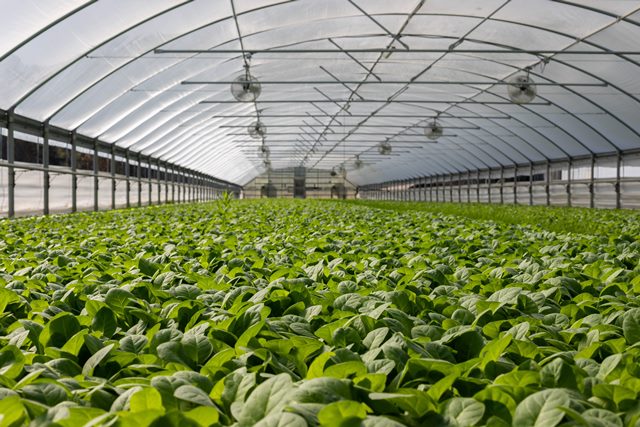
Climate-smart farming is another invention making tremendous progress in African agriculture. This involves methods that reduce the effects of climate change on crops. These methods include agroforestry, conservation agriculture, and the utilization of drought-tolerant plants.
Innovative Financing Models
African agriculture is also changing as a result of creative finance strategies. One of the best examples is mobile money, which has enabled farmers to obtain credit and conduct transactions more effectively.
For example, the M-PESA mobile money network has transformed how smallholder farmers use financial services in nations like Kenya, empowering them to invest in their fields and improve their standard of living.
Read: The African Entrepreneurial Spirit: Stories of Innovation and Resilience
Seamless API Connectivity for Next-Level Integration
Unlock limitless possibilities by connecting your systems with a custom API built to perform flawlessly. Stand apart with our solutions that others simply can’t offer.
Get StartedBenefits of Agricultural Innovations and Technologies
The agricultural industry and farming communities worldwide have benefited greatly from developments in agriculture and technology.
These innovations have completely changed agriculture’s growth for African farmers, increasing production, efficiency, and sustainability. Among the advantages of agricultural advancements and technology are the following:
Increased Yields and Productivity
Advancements in precision agriculture, biotechnology, and drought-resistant crops have raised yields and productivity. Farmers can now grow more food on the same land.
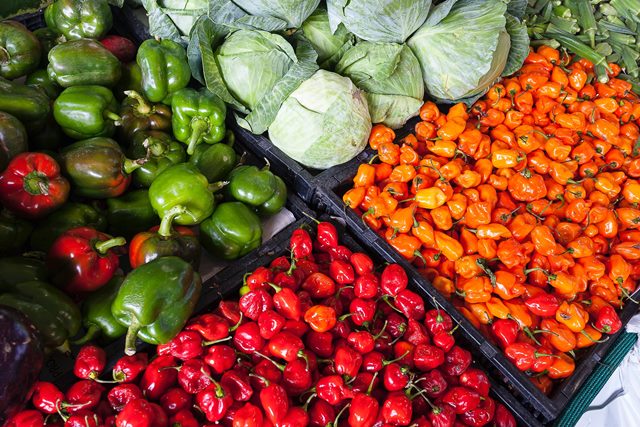
Enhanced Efficiency and Cost-Effectiveness
Drones, GPS, and GIS technologies have made it simpler for farmers to monitor and manage their crops. This has cut down on waste and maximized inputs like fertilizer and water. This has brought lower expenses and more profitability for farmers.
Improved Food Security and Nutrition
Scientists have been able to create crops resistant to pests and drought. These crops also have larger yields thanks to technologies like biotechnology, assuring food security for populations. This has also raised the quality of crops being produced, boosting the nutritional value of food.
Increased Incomes and Economic Growth
Farmers now have access to financial services and marketplaces thanks to technologies like mobile money and e-commerce platforms, which have raised rural economies’ revenues.
Environmental Sustainability
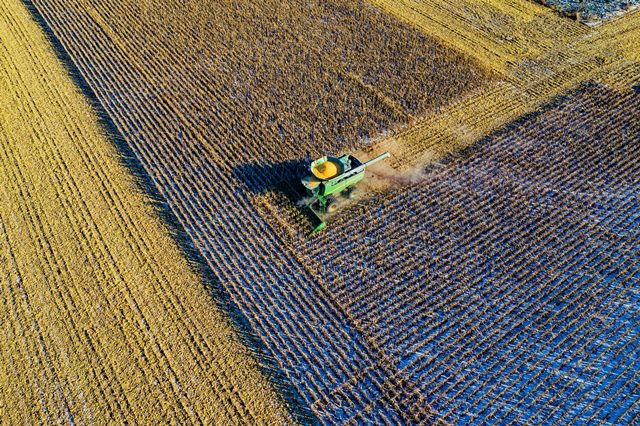
Transform Business with Custom CRM & ERP Solutions
Elevate your operations with a CRM or ERP tailored for you. Let’s build the perfect solution that others can't replicate—crafted to match your business's needs like no other.
Get StartedThanks to technologies like precision agriculture, harmful inputs like pesticides and fertilizers have been reduced. This has improved the health of the soil, decreased water pollution, and increased biodiversity.
Challenges to the Adoption of Agricultural Innovations and Technologies
Although agricultural innovations and technologies have the potential to revolutionize the industry and enhance farmers’ livelihoods, adoption and use can frequently be hindered by many difficulties and barriers.
Some of the difficulties and impediments to the adoption of agricultural innovations and technologies include the following:
Limited Access to Finance
Smallholder farmers face many difficulties, one of which is having limited access to financing, making it difficult to invest in new technologies. Farmers find it challenging to adopt new farming practices because they cannot afford to buy new technologies or equipment without access to credit and other forms of financing.
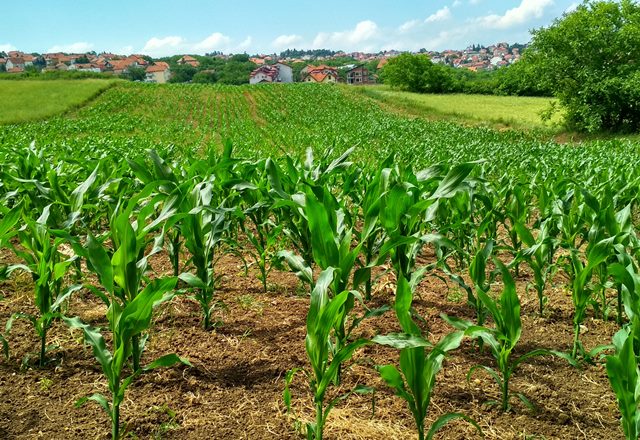
Lack of Technical Knowledge and Skills
Farmers’ lack of technical expertise and skills is an additional challenge to adopting agricultural innovations and technologies. Many farmers cannot use new technologies to their full potential because they lack the knowledge and expertise required.
Inadequate Infrastructure
A lack of adequate infrastructure, such as electricity and roads, in many rural areas severely hinders the adoption of agricultural innovations and technologies.
Farmers cannot access markets to sell their goods or essential inputs like pesticides and fertilizer without proper infrastructure.
Limited Market Access
Without access to markets, farmers may be discouraged from implementing new practices if they cannot recover the costs of their investments in modern equipment and technology.
Tailored Tech Solutions to Drive Your Business Forward
Maximize your business potential with custom tech strategies. We deliver bespoke solutions that others can’t match, designed to solve your specific challenges with precision and impact.
Contact Us
Cultural and Social Barriers
Farmers may resist using new technologies because they disagree with their traditional methods and beliefs. Additionally, the adoption of new technologies can be limited by gender-based disparities, particularly among female farmers.
Policy and Regulatory Barriers
Finally, it is sometimes difficult for farmers to adopt new technologies because of out-of-date laws and rules restricting their use. Weak regulatory frameworks and insufficient intellectual property protections can also hamper the development and spread of new technologies.
Case Studies Showing the Future of African Agriculture
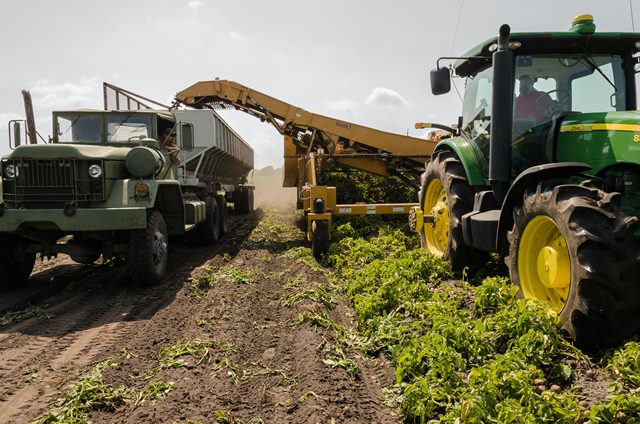
In recent years, the adoption and use of agricultural innovations and technologies have advanced significantly in Africa.
Numerous success stories have surfaced, showcasing the technologies’ potential to revolutionize the agricultural industry and enhance farmers’ quality of life.
Here are some examples of successful African agricultural innovations and technologies:
Precision Agriculture in Kenya
In Kenya, precision agriculture — using drones, GPS, and GIS to monitor and manage fields — has become popular.
Farmers use drones to survey their fields and locate problem areas, resulting in less waste and more efficient use of inputs like fertilizer and water.
As a result of this, farmers now enjoy higher yields and improved profitability.
Mobile Money in Uganda
Mobile money has transformed how farmers in Uganda access financial services and markets.
Thanks to mobile money platforms, farmers can access loans and other financial services, get paid for their goods, and conduct transactions without having to travel long distances. In rural areas, this has resulted in higher incomes and economic growth.
Biotechnology in South Africa
With the creation of genetically modified crops like insect- and drought-resistant cotton and drought-resistant maize, South Africa has become a leader in biotechnology in Africa. Because of their higher yields and resistance to pests and diseases, these crops contribute to better nutrition and food security.
Climate-Smart Agriculture in Ethiopia
Climate-smart agriculture is a practice that Ethiopia has adopted to help the country adapt to and lessen the effects of climate change.
These methods consist of agroforestry, conservation agriculture, and drought-tolerant plants. As a result, farmers now have higher yields and are more resilient to climate shocks.
Digital Extension Services in Rwanda
In Rwanda, digital extension services give farmers access to information and technical support. Farmers can access information on crop management, pest, and disease control, and weather forecasts through mobile devices and other digital platforms.
As a result, farmers now have better knowledge and abilities, which has raised productivity and profitability.
For the agriculture industry in Africa to develop sustainably, it is essential to invest in agricultural innovations and technologies. Millions of people in Africa rely on the agricultural sector as their primary source of income and employment.
However, the industry faces several difficulties, such as limited access to markets and financing, pests and diseases, and climate change.
By investing in agricultural innovations and technologies, the agriculture sector can overcome these obstacles and increase productivity and profitability.
Therefore, the productivity and profitability of the African agricultural sector can be significantly increased by embracing and utilizing agricultural innovations and technologies.
Before you go…
Hey, thank you for reading this blog to the end. I hope it was helpful. Let me tell you a little bit about Nicholas Idoko Technologies. We help businesses and companies build an online presence by developing web, mobile, desktop, and blockchain applications.
We also help aspiring software developers and programmers learn the skills they need to have a successful career. Take your first step to become a programming boss by joining our Learn To Code academy today!











